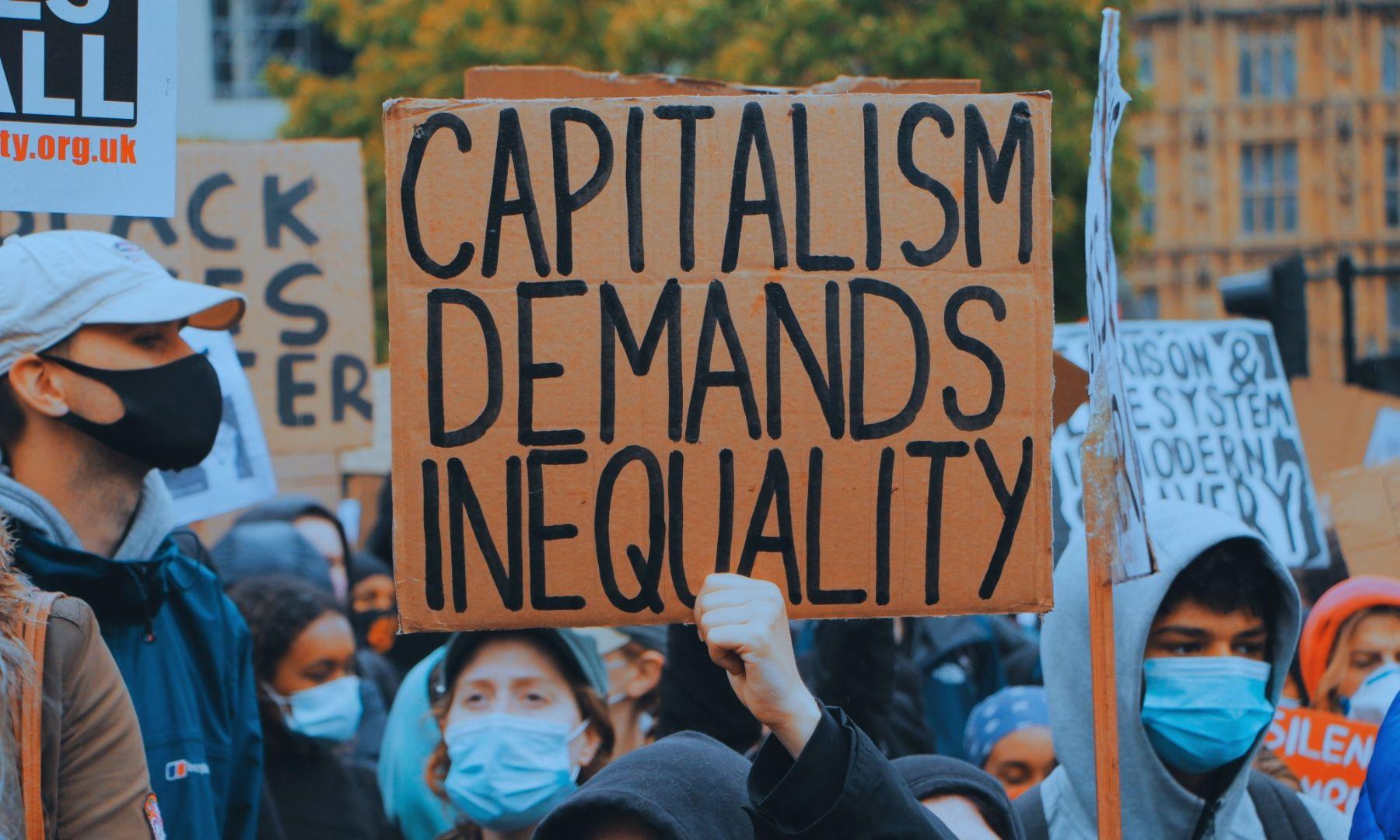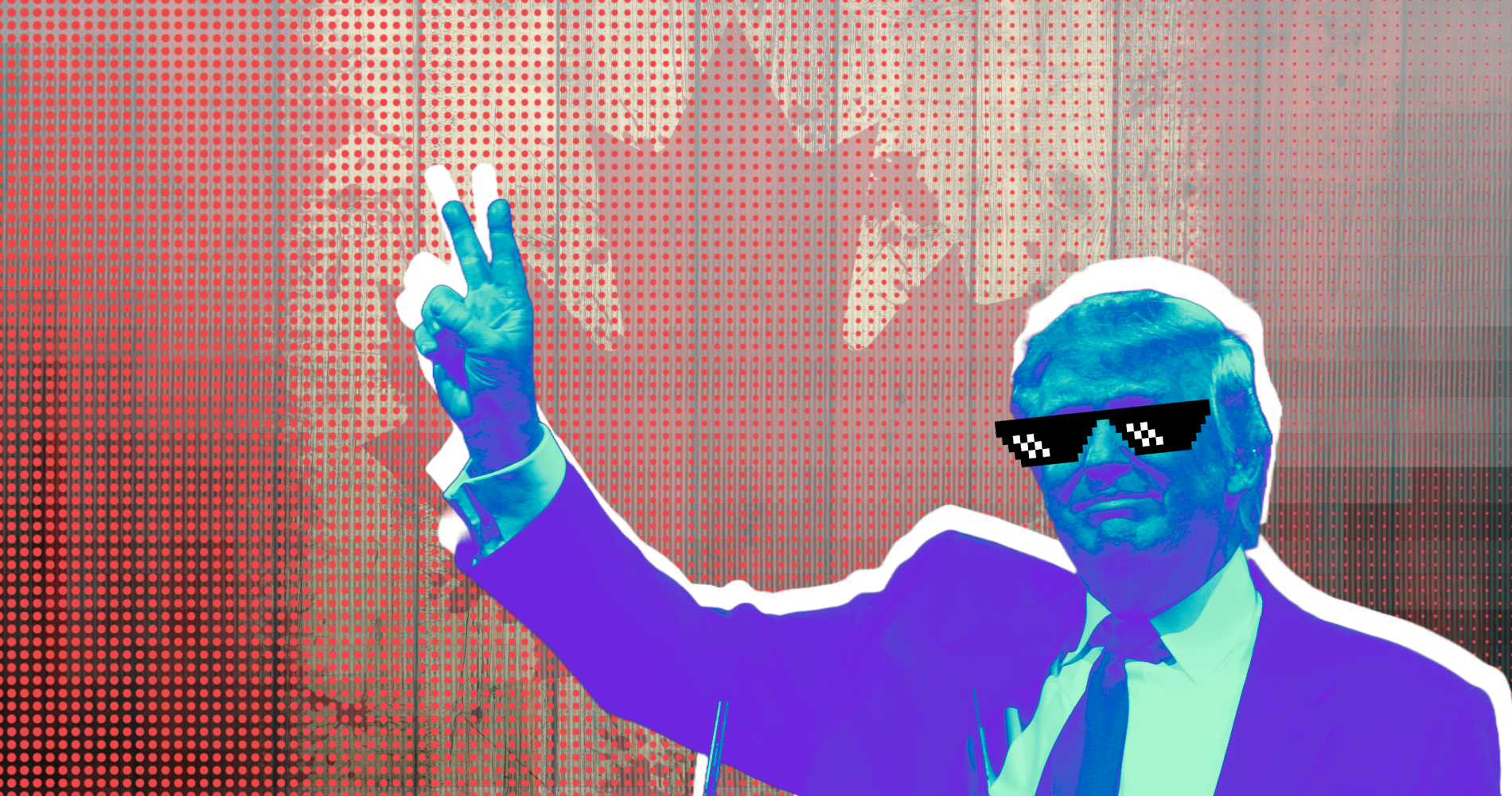If this crisis doesn’t discredit capitalism, what will?
There’s this cartoon about two cows. The first cow has just figured out, to her horror and shock, how hamburgers are made.
“They only fatten us up,” she says, “so they can slaughter and eat us.”
The second cow scoffs at her: “You leftists and your crazy conspiracy theories!”
I keep thinking about this cartoon as I survey the social and economic wreckage of the prolonged financial meltdown – the growing poverty, unemployment, and insecurity afflicting millions of people. Clearly the crisis was caused by the unbridled rapacity and greed of the top executives of the big corporations, banks, and investment firms. And by the complicity of political leaders and the commercial media.
The meltdown came as the culmination of several decades of out-of-control neoliberalism. A century of slow but steady progress toward a more enlightened and egalitarian society has been brutally reversed by “free trade,” job outsourcing, union-bashing, and savage cutbacks of unemployment insurance and other social programs. All to bolster corporate profits and stock dividends, fatten CEOs’ pay, and widen the income gap between rich and poor to an extent not seen since the early stages of the industrial revolution.
You would think that by now even the least enlightened people would have their eyes opened to the brutality and inequity of the capitalist system, especially as it has been practised globally since the mid-1970s. There’s been no lack of evidence, not even in the mainstream press and broadcast outlets, or in documentaries like Michael Moore’s devastating indictment of Capitalism now playing in cinemas around the world. The devastation has just been too enormous for even the most ardent free market admirers to ignore.
Still, the doubters and deniers have managed to hold centre stage. They’ve ascribed the financial crisis to the folly of a few irresponsible financiers, not to any serious faults with capitalism itself. “What’s the alternative?” they sneer. “Would you prefer communism or fascism?” And when you suggest “democratic socialism,” they scoff and say that would only be communism in disguise.
The business leaders, who still wield the most political and media influence, are going all out to minimize the destructive flaws in their free market system. It remains the best way to run the economy, they claim, and “you can count on us to learn from our mistakes.” And not a single political leader or mainstream media editorialist is calling for the replacement of capitalism with a more humane and sustainable system, as Michael Moore is doing.
The CEOs’ explanation for our economic woes is plausible, on the surface, if it’s not challenged. The few rotten apples in the capitalist barrel will be thrown out, they promise, but we’ll still be at the mercy of “uncontrollable” market forces. Globalization and free trade still work, and still require low-wage, low-tax, and low-cost competitiveness, as well as leaner employers and meaner governments.
This is mendacious claptrap, but it has the advantage of being solemnly endorsed and defended by legions of reputable academics, politicians, editorial writers, and of course the chambers of commerce and boards of trade. Given the persistence of that kind of influential acceptance, despite all the carnage of the Great Recession, it’s not difficult to lump in the dissenters on the left with the Flat Earthers, Elvis Presley sighters, and other crazy conspiracy theorists.
It’s not crazy, however, to point out that it’s the corporations that are cutting wages, laying off workers, busting unions, and moving jobs out of Canada; the corporations that pushed the hardest for free trade and the GST; that demanded the privatization and sale of Air Canada and Petro-Canada; that demanded the deregulation of key industries; that lobbied for and got multi-billion-dollar tax breaks; that used their political power to have basic social services shredded.
These are not the actions of passive, blameless business leaders. They don’t conform with the claim that the corporations, like the rest of us, are being swept along helplessly on a flood of uncontrollable changes. On the contrary, the evidence is irrefutable that they are the architects of these changes. Certainly, unlike the rest of us, they are very happy with the results.
The ancient Romans, when they wanted to understand what was happening and why, would ask: “Cui bono?” Who benefits? It’s still a pertinent question. Who stands to gain from high unemployment, falling or stagnant wages, low business taxes, weak unions, the dismantling of social programs? The answer is plain: the big corporations and the executives, investors, professionals and shareholders who split their profits.
The current deep recession is but a blip in their ongoing counterrevolution against the incipient just society that was in the process of being created in the latter half of the 20th century. The modern “robber barons” are bent on dragging us back to a new Victorian era in which corporate power once again reigns supreme. They’ve already pushed and pulled us well along that regressive course, but they won’t be satisfied until their efforts make the 21st century look more like the 19th.
To laugh that notion off as a leftist conspiracy theory is to emulate the skeptical cow in the cartoon.
Not that we’ll suffer the same bovine fate. We won’t become hamburgers. Just hamburger-flippers.
Ed Finn is the CCPA’s Senior Editor.


